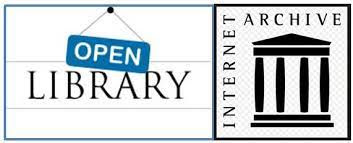When I wrote about public libraries and the lockdowns around a year ago, I said that eBooks and other online material can help to compensate for the lack of access to physical library books.
The library restrictions eased during the summer, but there is a possibility that stricter rules will soon be re-instated. If so, I will once again stop visiting the public library. The pile of my own books that I set aside last year to re-read and donate in batches has shrunk to almost nothing, but I have found a new – to me - online resource in the form of the Open Library, a not-for-profit project that operates very like a public library.
Project Gutenberg is a good source of digitised books, but in some ways the Open Library is better.
Where Project Gutenberg has only older books that are in the public domain because their copyrights have expired, the Open Library's lending stock includes newer, in-copyright books; where Project Gutenberg's books are available in various modern formats, the Open Library provides online images of the original print versions: readers get scanned covers and text pages, and illustrations and photographs are often reproduced too.
As can be seen from the labels, ticket pockets and date stamps on some opening pages, many of the books were provided by public libraries; this makes the reading experience even more like the real thing.
Where Project Gutenberg has lists, the Open Library also has 'shelves' that are organised and can be browsed like those in a physical library.
The ever-growing Open Library catalogue aims to list all works by a particular author whether they are in the Library or not; it is possible to select only those that are available for Reading and Borrowing.
While there is unlimited access to Project Gutenberg's books, many Open Library books can be checked out only if a copy is available. Some books can be borrowed for 14 days, some for one hour only – but they can be renewed if no one else is waiting for them. The Library argues that controlled digital lending is legal and does not involve copyright infringement.
There are various reading and display options: one, two or multi pages, large window or snippet view, and some books have an audio version. There is a Search facility too.
The book images are stored on the Internet Archive or Wayback Machine. The older ones are freely available for reading and downloading directly; the others may be borrowed only by Open Library members.
Joining is simple: just select a user name and provide an email address. Books are free to read and there are no reservation fees – although sponsorship and donations are welcome.
Users get a profile with several options: for example, they can see the list of books they currently have checked out and the return-by dates, just like a 'real' library. They can also maintain lists of books that they have read or want to read.
While I still much prefer paper books and am happy to pay reservation fees as I know that they help to keep public libraries going, if I can't use my local library Project Gutenberg and the Open Library are the next best thing.
The Open Library is a work in progress; it has a long way to go:
“The ultimate goal of the Open Library is to make all the published works of humankind available to everyone in the world. While large in scope and ambition, this goal is within our grasp. Achieving it will require the participation of librarians, authors, government officials and technologists.“
The Open Library logo:








